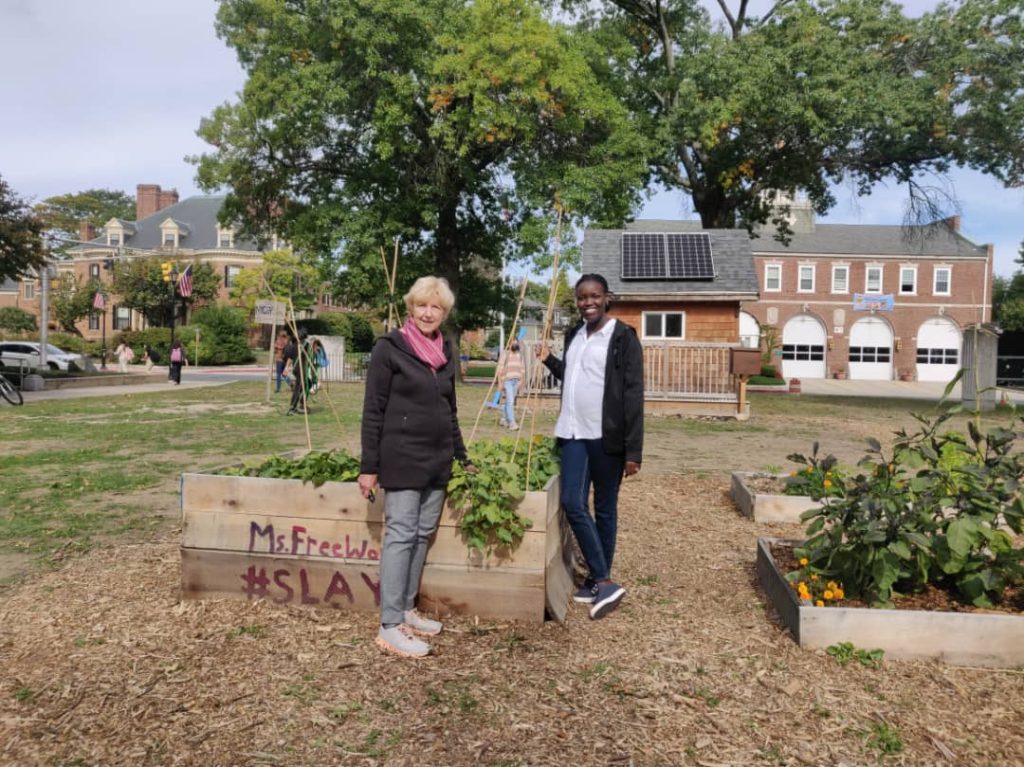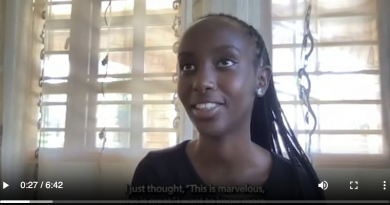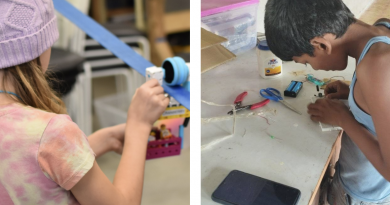Twenty Rwandan Schools to Provide Makerspaces for Their Students
The Rwanda Makerspace Consortium’s goal to start makerspaces in schools throughout Rwanda made great steps forward in December as forty teachers were trained to teach engineering and to set up makerspaces in their schools. These makerspaces will provide hundreds of Rwandan students with the opportunity to engage in Playful Engineering-Based Learning (PEBL).
In the fall of 2022, Djamila Khamisi, the Rwanda Makerspace Consortium project leader, spent three weeks at Tufts CEEO and the Tufts Department of Education to co-design a teacher training program for Rwandan teachers focused on hands-on, engineering-based learning. Djamila met with staff and faculty, sat in on Tufts Education courses, and visited makerspaces in local schools. She also tried out CEEO’s hands-on activities herself and then adapted them to existing Rwandan resources and culture to ensure alignment with Rwandan classrooms.
In December, forty teachers gathered at the Maranyundo Girls School over two consecutive weekends. They came from twenty different schools, both private schools administered by the Benebikira Sisters and public schools in Bugasera.
The training began with Novel Engineering challenges, an approach developed by Tufts CEEO that integrates engineering and literacy by using existing classroom literature as the context for engineering design challenges. Teachers worked in small groups to design something to solve a problem for a character, shared their design with the rest of the teachers, and iterated on their design based on feedback. Participating in the challenges themselves provided the teachers insight into what the experience will be like for their own students.
In order to meet the needs of the different grade levels, the primary and secondary teachers were later divided into separate groups. Robert Sande, an experienced teacher who spent time at Tufts in 2011, led the hands-on sessions with the primary school teachers as they built model houses to address the water issues prevalent in Rwanda. The teams offered critiques of one another’s designs and then made adjustments to improve their designs, experiencing firsthand how making leads to collaborative learning and problem-solving.
Meanwhile, Djamila, who is also an electrical engineer, taught the secondary school teachers how to use Arduino, a microcontroller that can read sensors and control motors, allowing users to automate their creations. Teachers designed multiple solutions to local problems including fans, a device to test the water level in soil, and a smart energy device to switch on and off the lights according to whether humans were present.
At the end of the hands-on sessions, teachers shared their projects and discussed what they learned and how they would implement it with their students. The director of the local education board attended these final sessions viewing the teachers’ work. He congratulated everyone on their progressive approaches, noting that making will help Rwandan students build the skills needed for the 21st century.
Tufts Distinguished Senior Lecturer Linda V. Beardsley, who has worked with the Maranyundo Girls School and Rwandan educators for over a decade, participated in the final training weekend along with Joni Block, an early childhood and special education educator. Both were impressed with the teachers’ commitment and enthusiasm for bringing new approaches to their school and believe this will lead to great success as the teachers return to their schools with new laptops and a starter kit of supplies for their new makerspaces.
Read more about Linda’s experiences in Rwanda on her blog.




